Wedding RSVP Form
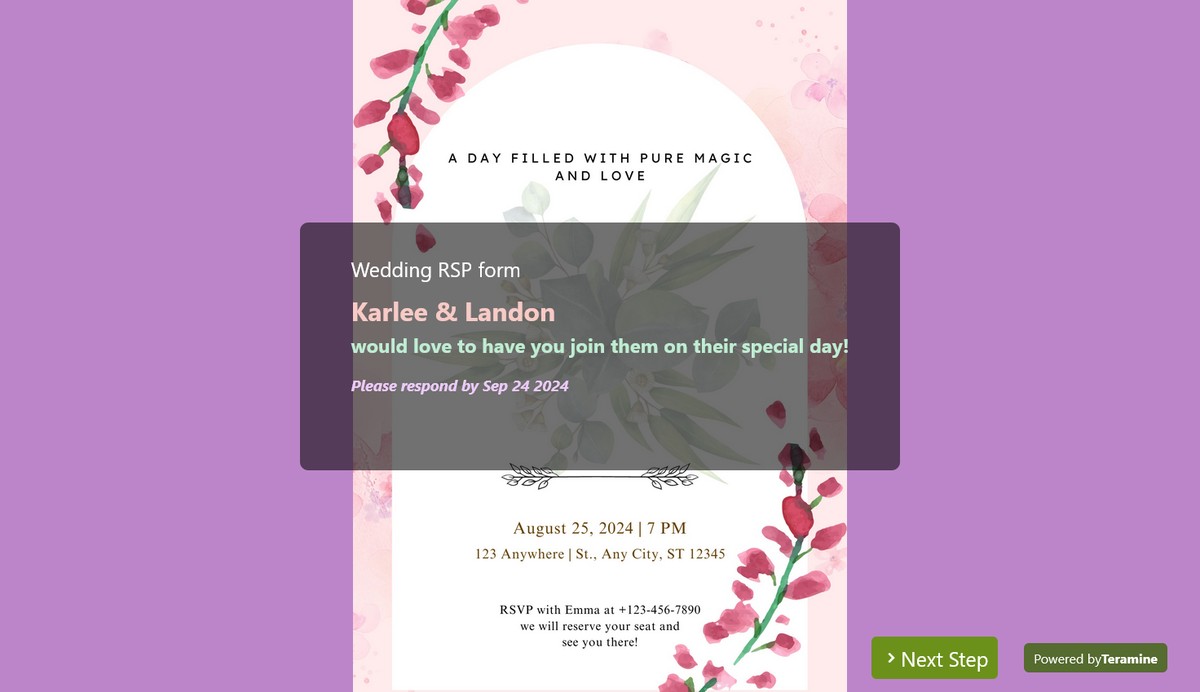
A wedding RSVP form serves several important purposes for both the couple getting married and their guests. It helps determine the number of attendees, which is crucial for planning the size of the venue, seating arrangements, and other logistical aspects. For the guests, it provides a formal way to confirm attendance and communicate any special needs or preferences to the couple.

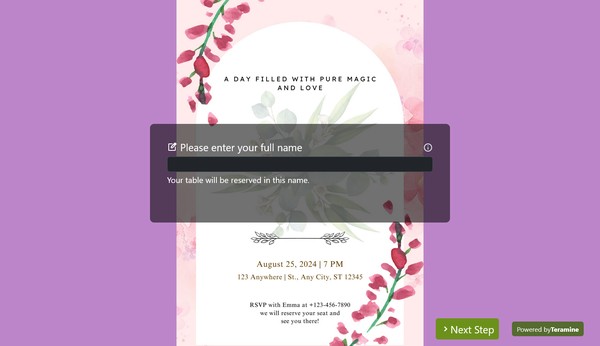
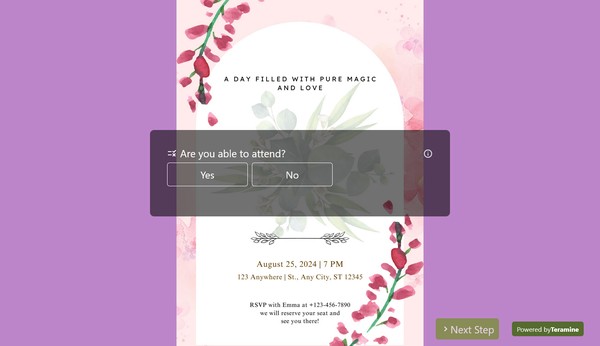
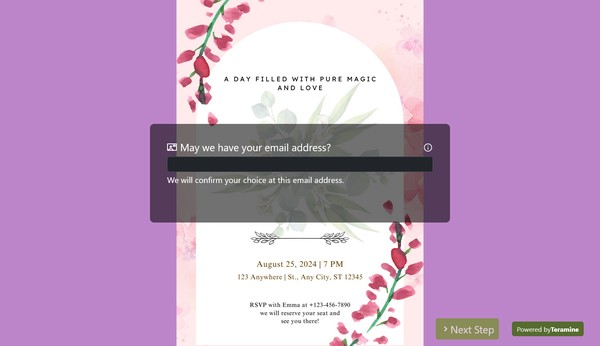
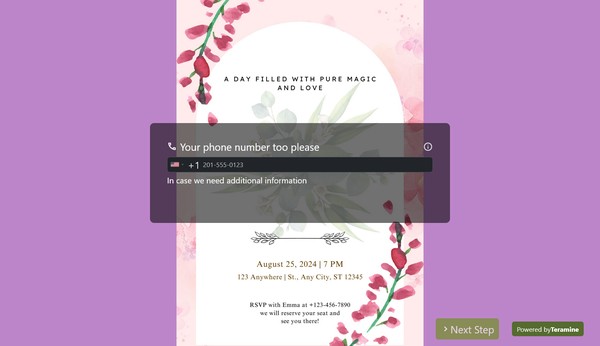
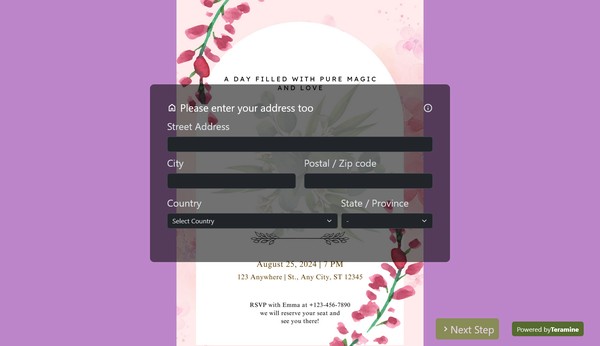
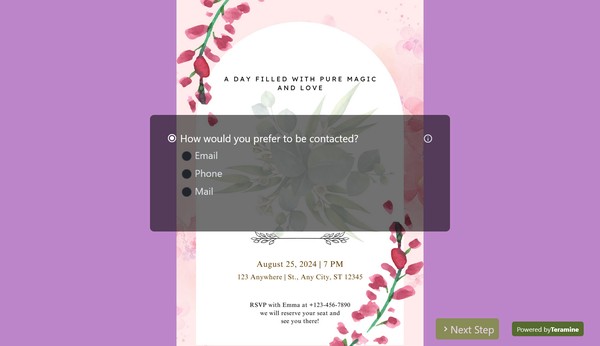
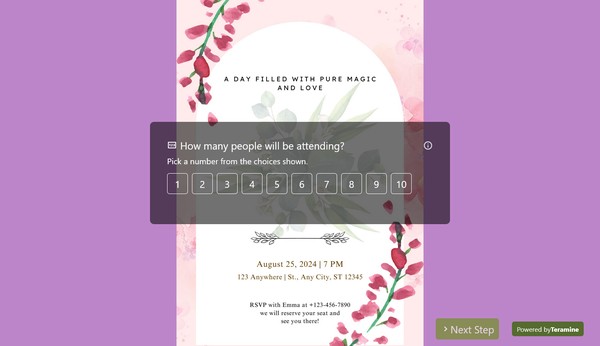
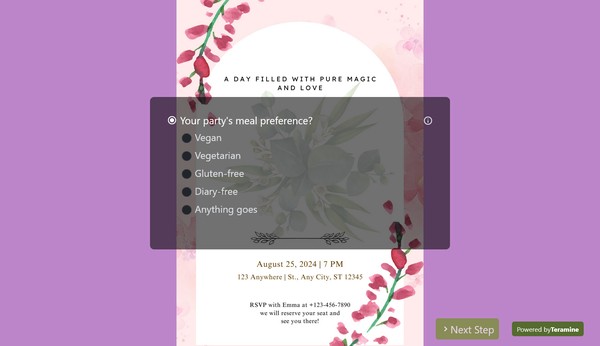




Wedding RSVP Form FAQs
A wedding RSVP form is a tool used by wedding hosts to gather responses from invited guests regarding their attendance at the event. The acronym "RSVP" stands for "Répondez S'il Vous Plaît," which is French for "Please Respond." This form typically asks for the guest's name, their response indicating attendance (accept or decline), and any additional information such as meal preferences, dietary restrictions, and the names of additional guests.
The primary purposes of a wedding RSVP form include:
- Headcount Management: Helps the hosts determine the number of attendees for logistical planning, such as seating arrangements, catering quantities, and venue setup.
- Customization: Provides necessary details to accommodate guests' specific needs, ensuring a pleasant experience.
- Follow-Up: Facilitates communication with guests who have not responded by a specified deadline.
A well-organized RSVP system contributes significantly to the overall planning and smooth execution of the wedding event.
A comprehensive wedding RSVP form is essential for gathering crucial information to ensure a smoothly coordinated event. An effectively designed form should include the following components:
Respondent Information:
- Full Name(s) of attendees
- Contact Information (Phone number and/or email address)
Attendance Confirmation:
- Will you be attending? (Yes/No)
- Number of Adults attending
- Number of Children attending (Optional)
Meal Preferences:
- Selection of meal options (e.g., chicken, beef, vegetarian, vegan)
- Dietary restrictions or allergies for each guest
Special Requests:
- Accessibility needs (if any)
- Other specific requirements (e.g., high chair for infants, preference for seating arrangements, etc.)
Accommodation Information:
- Will you require accommodation? (Yes/No)
- Preferred accommodation type
Transportation Needs:
- Will you need transportation assistance? (Yes/No)
- Type of transportation assistance (if relevant)
Additional Information:
- Any comments or additional details the guests may wish to provide that would help in planning
RSVP Deadline:
- Clear indication of the deadline by which the form should be returned
Contact Information for Queries:
- Information on whom to contact in case the guest has questions or needs further assistance
By including these elements, you can ensure that you gather all the necessary information to make informed decisions regarding catering, seating, and other logistical arrangements for your wedding day.
Utilizing a wedding RSVP form is highly advisable for various practical and organizational reasons. Here are key benefits:
Accurate Headcount: An RSVP form allows you to obtain an accurate count of attendees, aiding in precise planning for seating arrangements, catering, and other logistics.
Streamlined Communication: It facilitates streamlined communication between you and your guests, helping you track responses easily and follow up with any who have not responded.
Cost Management: By knowing the exact number of attendees, you can effectively manage and possibly reduce costs related to food, beverages, and wedding favors.
Dietary Preferences and Restrictions: It provides a platform for guests to communicate any dietary restrictions or preferences, enabling you to cater to their needs without complications.
Personalization: Collecting RSVP responses early allows for a more personalized experience, as you can tailor elements of the event based on the confirmed guest list.
Stress Reduction: The organization and clarity provided by an RSVP form can significantly reduce the stress associated with planning a large event.
Incorporating a wedding RSVP form is a strategic decision that ensures a smooth and efficient planning process, contributing to the overall success of your event.












